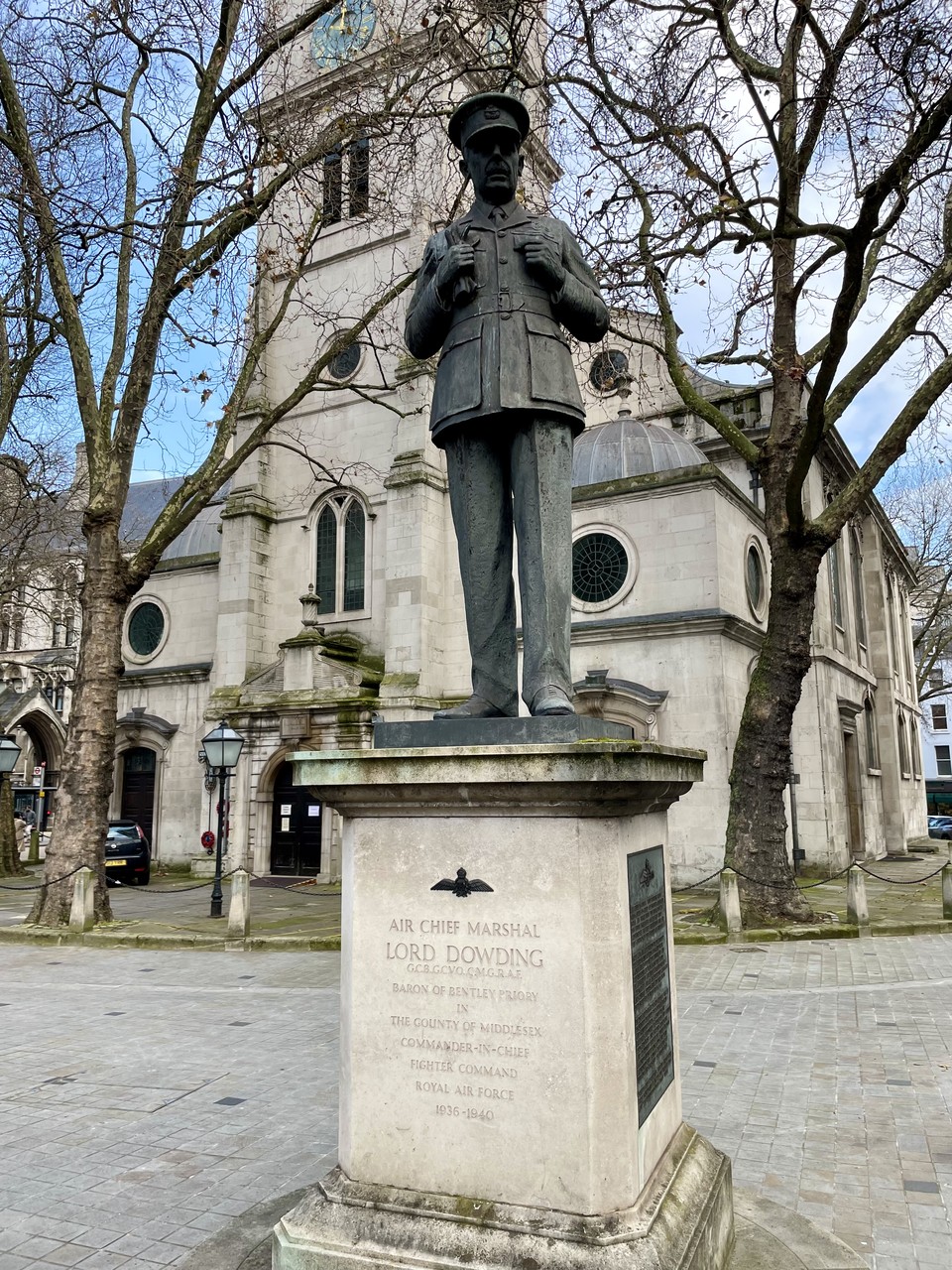Dowding is credited for the defence given by the RAF Fighter Command during the ‘Battle of Britain’ and his management and deployment of fighters to intercept enemy action over the UK. He also introduced the ‘Dowding System’ which involved the use of radar, air observers, anti-aircraft defences plus fighter command.
He eventually retired in 1942 following conflicts with other senior RAF officers around the deployment of ‘Big Wing’ tactics (a proposed military strategy during the Battle of Britain). He died in 1970. His body was cremated and his ashes are now interned in Westminster Abbey under the Battle of Britain Memorial Window in the Royal Air Force chapel.
The memorial plaques around the stone plinth offer further information of Dowding and Fighter Command.
Arthur Harris was born in 1892 and served in the British Army in the First World War and then the RAF from 1918 to 1946. He held the rank of Air Officer Commanding-in-Chief RAF Bomber Command. This was during the height of the Second World War and the Allied bombing campaigns against Nazi Germany. He is also known as ‘Bomber Harris’.
Under his command the RAF conducted ‘area bombing’ from 1942 which brought destruction and death to many German cities and populations. The British Prime Minister at the time, Winston Churchill, pressed for advances in technology and tactics for more precision targeting, which would reduce civilian casualties. Harris was part of the process in advances towards ‘precision bombing’, however he preferred the ‘area’ tactic. His tactics over the years have become a point of debate, with raids such as Dresden, Germany.
Harris retired in 1946 and died in 1984. He is buried in Goring upon Thames. He was the most senior RAF officer to not accept a peerage (a form of distinction by the British Crown), due to his belief that his men had been snubbed of recognition and honour when serving directly in Bomber Command during the Second World War.
The memorial plaques around the stone plinth offer further information of Harris and Bomber Command.
